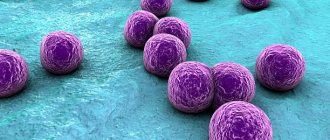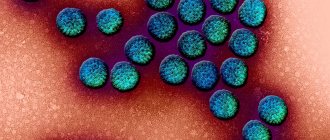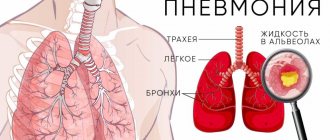Anonymously
Around the clock
Attention! The material contains information about substances, the use of which can cause serious harm to your health!
Troubles in personal and social life, the loss of a loved one or health problems often provoke the development of mental illness. Many disorders are short-term and can be dealt with on your own. But, there is a more severe depressive state, which is characterized by a lingering effect. Experienced psychologists help you get rid of depression.
- What is depression?
- Disease statistics
- Causes of the condition
- Biological
- Psychological
- Social
- Signs of clinical depression
- Physiological
- Psychological
- Behavioral
- Stages of development of depression
- First stage
- Second stage
- Third stage
- Complications of depression
- Sleep disturbance
- Apathy
- Lack of interest in life
- Biochemical processes in the brain
- Types of depression in psychiatry
- Classical
- Psychiatric
- Moderate
- Heavy
- Expressed
- Chronic
- Acute
- Black
- Behavioral
- Resistant
- Consequences of prolonged depression
- Prevention of depression
- How to get rid of depression on your own?
- Treatment methods for depression in Moscow
- Diagnostics
- Drug therapy
- Treatment at home
- Psychological help
- When should you go to the hospital?
Treatment prices:
| Service | Price, rub) |
| Types of therapies | |
| Standard detoxification therapy | 3 500 ₽ |
| Double Detox Therapy | 6 000 ₽ |
| Enhanced Detoxification Therapy | 7 500 ₽ |
| Maximum detoxification therapy | 9 500 ₽ |
| Quick sobering up at home | 7 500 ₽ |
| Hospital at home 1 day | 22 000 ₽ |
| Advanced hospitalization | 15 000 ₽ |
| Treatment in hospital | |
| Accommodation | |
| Economy chamber (6 beds) | 2 000 ₽ |
| Standard room (4 beds) | 3 000 ₽ |
| Increased comfort (2 seater) | 5 500 ₽ |
| VIP chamber (1 person) | 12 500 ₽ |
| Individual post 24/7 | 5 000 ₽ |
| Medical and social rehabilitation 21 days | 140 000 ₽ |
| Service | Price, rub) |
| Initial consultation with a narcologist | for free |
| Consultation with a psychologist | 3 000 ₽ |
| Psychiatrist consultation | 5 000 ₽ |
| Coding at home Torpedo | 7 500 ₽ |
| Express output and encoding (doublet) | 13 500 ₽ |
| Coding using the Dovzhenko method | 12 000 ₽ |
| Hypnosis classic session | 13 000 ₽ |
| Ericksonian hypnosis session (NLP) | 8 000 ₽ |
| Coding method Torpedo | 5 500 ₽ |
| Double block | 8 000 ₽ |
| Esperal injection for 1 year | 9 900 ₽ |
| Tetlong for 3 months | 10 500 ₽ |
| Esperal gel for 1 year | 15 000 ₽ |
| Selincro course of therapy | 12 500 ₽ |
| Implantation of Disulfiram for 1 year | 18 000 ₽ |
| Vivitrol injection for 1 month | 26 000 ₽ |
| Naltrexone stitching for 3 months | 35 000 ₽ |
| Neuroimplantation Prodetoxon for 6 months | 47 500 ₽ |
| Narcopsychotherapy session | 50 000 ₽ |
| Neutralization of encoding | specify |
| Psychodiagnostics / pathological diagnostics | 7 500 ₽ |
| Psychotherapy session | 5 000 ₽ |
| Family psychotherapy | 6 000 ₽ |
| Outpatient rehabilitation in Moscow | 33 000 ₽ |
Expand
We will select an individual treatment plan
Free consultation 8-800-200-27-23
Disease statistics
Depression is the most common mental disorder in the world. According to statistics, 280 million people experience depression, which is as much as 4 percent of the total world population. In our country, according to the Ministry of Health, every tenth person suffers from depression. This is about 15 million people of different ages and genders. Experts say that the female half of humanity is most susceptible to the development of mental disorders of a depressive nature.
Causes of the condition
Disturbances in neurotransmitter activity in the neurons of the brain system play an important role in the development of depression. Serotonin deficiency manifests itself in increased irritability, sleep disturbances, and decreased libido. Lack of dopamine leads to disruption of mental and motor activity. Mental and physical symptoms include loss of interest in life, apathy, and muscle weakness.
Biological
Experts have proven that women are most susceptible to developing depression. Emotional instability caused by pregnancy, postpartum, menopause, provokes endocrine changes in the body. Biological reasons include:
- Immune.
- Neurobiological.
- Asthenia of the body against the background of severe infectious diseases.
Psychological
Psychological reasons include the inability to find the right strategy in solving problems. A person does not understand how to act correctly in a given situation. Against this background, he seems to be stuck in a problem with all the ensuing consequences. Also susceptible to depression are people who, due to their temperament, have a tendency to worry for a long time about any reason.
What does this term mean?
Apathy is a psycho-emotional state in which a person’s interest in life sharply decreases or is completely absent, his indifference to the world around him and other people manifests itself, and depression of emotions occurs. This disorder is characterized by varying variations in the severity of clinical signs, up to an absolute loss of the desire for life itself.
Often apathy is the first and most obvious symptom of severe mental illness (schizophrenia, depression) or organic pathologies of the cerebral cortex. This condition develops in people who have suffered severe stress, as well as those suffering from serious or incurable diseases (heart attack, stroke, oncology).
How to get there
Social
Perhaps these are the most common reasons that lead to the development of depression. The following factors negatively affect the human psyche:
- Acute and chronic stress. For example, the loss of a loved one, divorce, betrayal, violence.
- High work loads.
- Job loss and change.
- Retirement.
Older people do not adapt well to changes in life. Therefore, any change, even positive, can lead to the development of stress or depression.
Signs of clinical depression
A key sign of clinical depression is low mood. A person loses the ability to receive joy from anything. There is a negative assessment of others and oneself. The person experiences psychological inhibition and decreased physical tone.
Physiological
Physical activity decreases due to a lack of desire to do work or household chores. A person becomes lazy and gloomy, unable to start and finish any activity. Sleep is disturbed, appetite is lost or increased, libido decreases.
Psychological
In a state of depression, the functioning of the brain and central nervous system is disrupted. A person becomes indifferent to everything, his memory deteriorates, and his self-esteem decreases. In a severe stage, it is impossible to cope with this condition on your own.
Behavioral
A person has passivity, it is difficult to involve him in active activity. He begins to avoid contact with other people and refuses entertainment. Often, when people are depressed, they begin to abuse alcohol and drugs.
Symptoms
The clinical picture of apathy includes the following signs:
- Poor appetite - a change in the patient’s psychological state almost always affects the need for food, which is greatly reduced. A person may even be irritated by the smell or taste of certain foods. Sudden weight loss is possible.
- Closedness - when communicating with your loved ones and even strangers, a reluctance to talk appears. Such a person rejects the usual pastime and strives for solitude. Being alone, he is sad, feeling the hopelessness of his situation and not knowing what to do next and how to live.
- Depressed mood - sometimes the patient feels better, but not for long. He does not experience joy and feels that his life is not like everyone else's.
- The presence of problems with memory and concentration is clearly manifested when communicating with an apathetic person; he often does not follow the progress of the conversation or forgets what was said.
- Feeling tired – constant overwork does not disappear even after a full night’s sleep.
- Lack of initiative - with apathy, people become detached, are not interested in anything, and this affects various areas of their life (work, study, relationships with a partner).
The usual decline in mood should not be confused with the concept of apathy, which often lasts from two weeks to several months. In such a situation, you need to take action immediately. It is the relatives who are the first to notice such a violation, because an apathetic person even looks different, becomes irritable, depressed and depressed.
Stages of development of depression
Depending on the cause and individual characteristics of the individual, the development of depression can be divided into three main stages.
First stage
Performance decreases significantly, mood deteriorates for no reason, and interest in what is happening is lost. If a person tries to entertain himself and get rid of problems, he can easily get out of this state.
Second stage
Negative symptoms increase, in addition to psychological discomfort, physical discomfort is involved - sexual desire decreases, sleep is disturbed, and appetite is lost. There is a complete loss of work activity.
Third stage
There is a pronounced agitated state or complete inhibition. The mood is always bad, there is low self-esteem and a feeling of guilt. During the third stage, suicidal tendencies may appear.
Events
13.12.21
Residents visited the Bulgakov Theater
Drug addicts and alcoholics, as a rule, have absolutely no idea how to spend their leisure time without taking “doping.” Therefore, an important part of rehabilitation...Read more (~1 min.)
«
08.12.21
Parents' Day in
Support from loved ones is an integral part of the rehabilitation of a person with alcohol or drug addiction. Since the use of telephones and other...Read more (~1 min.)
«
08.11.21
Residents' trip to the Zvenigorod club "Goliath"
Leisure activities are an integral part of the rehabilitation program for residents. Team games, visiting museums, theaters, exhibitions, picnics...Read more (~2 min.)
«
13.10.21
Travel of rehabilitators of the “Zdravnitsa” Center to “Ruzskaya Alaska”
One of the important tasks of a rehabilitation center for addicted people is to teach them to enjoy life in sobriety, to find...Read more (~2 min.)
«
All events
Therapeutic measures
Therapeutic tactics for such patients are selected by the doctor after determining the form of the disorder and the severity of its symptomatic signs. Mild cases of apathy are treated without the use of medications. The patient is advised to improve his lifestyle: properly alternate between rest and physical activity, start playing sports, and regularly take walks outdoors. In this case, communication with friends, support from relatives, and travel help eliminate apathy.
A severe form of apathy requires consultation with a neuropsychiatrist. The treatment regimen for this condition includes a course of pharmacological medications and numerous psychotherapy sessions.
Untimely or incorrect treatment of complex forms of apathy often causes severe depression and suicidal attempts in the patient. Although the prognosis for such a disorder is often favorable, because apathy is quite treatable.
Complications of depression
If a person suffers from chronic diseases such as hypertension, heart disease, asthma, gastritis or ulcers, oncology, then with the development of a depressive state the course of these pathologies becomes more severe. At the same time, the severity of the pain syndrome increases. The patient's sleep is disturbed, he becomes indifferent, and loses interest in life.
Sleep disturbance
With depression, a person is in an anxious, confused state. He can't sleep at night and then falls asleep during the day. The biological rhythm goes astray, and negative changes begin to occur in the functioning of other organs.
Apathy
Indifference or apathy is a consequence of prolonged stress or depression. A person’s desires disappear, he lacks the motivation to take care of loved ones and do household chores. Apathy fetters a person who becomes self-absorbed, while internal anxiety grows.
Lack of interest in life
A depressive state is characterized by a loss of interest in what is happening around. Complete apathy and indifference are the body’s protective reaction to a stressful situation. You can cope with this condition on your own only at the initial stage of development of the disorder. In the chronic form, you need to consult a psychologist.
Biochemical processes in the brain
In patients with depression, biochemical processes in the brain are disrupted. The balance of hormones is disrupted, making the condition even worse. If drug treatment is not started in time, this will lead to irreversible consequences.
OUTPATIENT REHABILITATION
- Classic
Characterized by depressed mood and lack of pleasure from previously enjoyable activities. Negative changes in cognitive functions occur, memory deteriorates. Motor activity decreases, and loss of strength often occurs. - Psychiatric
A mental disorder is observed in which a decrease in mood occurs and indifference to everything that happens. A person is often sad and depressed. To treat this condition, doctors prescribe effective antidepressants. - Moderate
Characterized by a depressed state for two weeks. However, it does not improve under the influence of external factors. Sleep and eating behavior are disturbed; a person may sleep little, but at the same time experience hyperactivity in the morning, which is then replaced by apathy. - Severe
A serious mental disorder that combines mental, physical, and behavioral symptoms. It is characterized by a persistent pessimistic mood, depression and melancholy. A severe form of depression develops as a result of severe stress or a traumatic situation. - The severe
severe stage of the development of the disease includes all negative manifestations. A depressed depressed state, a constant feeling of mental pain and guilt coexist with a loss of strength and indifference. Particularly emotional people begin to have thoughts of suicide. - Chronic
Symptoms in the chronic course of the disease persist for about two years. A prolonged form of depression is accompanied by constant apathy, decreased mood, and anxious thoughts. A person’s self-esteem decreases, he moves less, and his mental abilities decrease. Chronic depression requires qualified treatment in a clinic. - Acute
Genetic factors lead to an acute form of depression. Gene mutations predetermine congenital deficiency of serotonin, dopamine and norepinephrine. As a result of a lack of these substances, depression develops, manifested by rapid fatigue, bad mood, and apathy. - Black
Black depression is characterized by a hopeless negative state. A person begins to feel guilty in all situations that do not even depend on him. He always has anxiety, a gloomy mood, and for all troubles he blames himself and those around him. - Behavioral
Depression is often perceived by others as a character trait. With a mental disorder, a person’s behavior changes for the worse. He becomes indifferent to social affairs, avoids communication and entertainment, and often begins to use alcohol or drugs. - Permanent
Depression is often perceived by others as a character trait. With a mental disorder, a person’s behavior changes for the worse. He becomes indifferent to social affairs, avoids communication and entertainment, and often begins to use alcohol or drugs. - Resistant
is a mental disorder that has not responded to treatment by specialists in one or two courses. Resistant depression includes severe depression and partial remission. To achieve the effect of treating such a disorder, a long period of hospital stay and complex treatment, including with the participation of a psychologist, are necessary.
Types of depression in psychiatry
Based on the nature of its course, mental disorders are classified into several types, each of which poses a danger to the human psyche.
What does apathy look like: symptoms and signs
Apathy deprives a person of interest in life, desires and motivation. The absence of these important stimuli has a detrimental effect on behavior and performance. A low energy level will interfere with both daily routine tasks and taking on new challenges.
Important
Over time, despite the actual deterioration of the condition, patients talk less and less about their problem, but go deeper and deeper into it.
Emotions become dulled, which is why everything that usually aroused interest no longer gives an emotional response. Attacks of apathy deprive you of interest in almost all aspects of life. A person may be indifferent when long-awaited events occur, or when meeting new people. It is difficult to make an effort even to solve personal problems. Accumulated problems at work and in personal life only aggravate the situation, because apathy is one of the ways the psyche isolates itself from a difficult situation and overexertion.
At first, when the manifestations have not reached their maximum, people may express similar complaints: “I have some kind of apathy, I don’t want anything,” “I’m tired of everything, I can’t concentrate, I have no desire.” Over time, despite the actual deterioration of the condition, patients talk less and less about their problem, but go deeper and deeper into it. If your loved one complains to you about painful feelings, you should not ignore these words - the person may need help.
The main signs of apathy:
- decreased or absent aspirations and motivation;
- changes in emotions and behavior: decreased interest in life, communication, previous hobbies and new events, difficulties in performing current tasks, lethargy, lethargy, poor concentration, decreased mental functions, etc.;
- impact on quality of life: changes in behavior negatively affect professional success and personal life;
- changes in behavior are not associated with drug and alcohol use.
Clinically significant is the presence of these signs in a person for four weeks. However, if you notice apathy in yourself or a loved one, which lasts less but causes significant discomfort and interferes with life, do not delay contacting a specialist. A professional will quickly help you understand the situation and understand whether it is just a bad mood, fatigue, or a condition that requires correction in order to prevent complications.
Diagnostic measures that can be carried out in a person with complaints of apathy:
- Consultation with a psychiatrist-psychotherapist
- Pathopsychological examination: helps more deeply
- explore mental functions such as thinking, attention and memory. The method helps to detect disorders in the early stages and prevent the occurrence of severe manifestations
- Laboratory and instrumental techniques to confirm
- diagnosis: Neurotest, Neurophysiological test system, EEG, CT, MRI of the brain (if organic pathology is suspected)
- Consultation with related specialists (neurologist)
Consequences of prolonged depression
With chronic depression, not only the functioning of the brain is disrupted in a person. Due to a mental disorder, the immune system malfunctions. As a result, the body’s protective functions weaken, and the risks of developing diseases, including infectious ones, increase. It is difficult for a person after depression to socialize in society. If treatment is not started, depression becomes severe.
Find out treatment recommendations without leaving home for free
To select a treatment plan, you just need to leave a request, we will contact you to select the time and specialist you need
Submit your application
Treatment of apathy and depression
Before fighting depression and apathy, it is necessary to understand the reasons for the development of these conditions. If possible, you need to use your willpower to analyze your condition and understand what is necessary to return to an active life. The danger lies in the fact that a person quickly plunges into an apathetic state; it seems to him that he can live like this without taking any action. Therefore, it is important that close people psychologically help the person, and if the disorder in question drags on, then bring him to a psychologist to find out how to overcome depression and apathy.
Most often, the cause of the described conditions is severe stress. The chain “stress – apathy – depression” is fraught with the development of a serious condition. Answering the question about methods of combating depression and apathy, experts note the need to avoid stressful situations. For example, if there is a conflict at work, then it needs to be resolved or a job change altogether. But doctors warn that this approach may not always work - for example, if a person has lost a loved one, then it is impossible to avoid stress. Therefore, you should immediately turn to specialists for psychological help.
It is not possible to quickly get rid of apathy and depression; this requires time and effort. When depression begins, it will be effective to set yourself some grandiose goal, the path to which can be divided into several stages. This should be a realistically achievable goal, and then achieving what you want will be much easier. It is worth keeping a diary of your achievements and carefully planning each day, noting what has already been done.
In severe cases, apathy and depression are treated with medications. They are prescribed only by doctors - you need to know not only the daily dosage, but also the duration of therapy. Psychotherapy sessions are carried out simultaneously with drug therapy.
Controlling your psycho-emotional state will help you avoid violations. How to get rid of apathy and depression without hospitalization and taking medications can be found on the pages of our Dobrobut website.
Prevention of depression
To avoid the development of depression, you must follow the following recommendations:
- Properly distribute workload and rest. Sleep should be full for at least eight hours.
- Maintain a daily routine. The day is for being awake and the night is for resting.
- Proper nutritious nutrition will strengthen the body.
- Lead a healthy lifestyle. To feel good, you need to play sports, you can just go jogging every morning.
- Avoid stressful situations.
You should try to find interesting hobbies that bring joy and satisfaction. Positive emotions are the main prevention against depression.
Treatment
Apathy is not always a condition that needs to be treated. If a person has become less emotional and proactive after a period of high stress or a traumatic situation, you need to give the body time to recover - ensure proper sleep, healthy nutrition, and protect from worries and mental stress. If the apathy is severe, lasts more than a week, and significantly worsens the patient’s quality of life, special treatment is necessary, including psychotherapy, medication, and changes in rest and work patterns.
Adequate rest helps overcome apathy
Psychological help
Psychotherapy and psychological counseling are necessary for patients with severe apathy. To improve the condition, methods of cognitive behavioral therapy and psychoanalysis are used. The specialist conducts individual sessions where the probable causes of apathy and ways to overcome apathy are discussed. With the help of a psychologist, the patient again learns to feel his emotions, set goals, and resist stress. At the second stage of therapy, it is possible to attend group trainings - interaction with other people increases a person’s interest and motivation.
Drug treatment
If the cause of apathy is excessive stress and fatigue, minimal drug support is indicated to help the body recover faster. Vitamin and mineral complexes and herbal adaptogens, for example, tincture of ginseng or eleutherococcus, are prescribed. In case of severe apathy due to mental and neurological diseases, pharmacological drugs are used: psychostimulants, antidepressants, analeptics. Their combination, dosage and duration of administration are determined by the doctor individually.
Lifestyle correction
Along with the main treatment aimed at eliminating the cause of apathy, it is recommended to introduce new activities into the daily plan, even if at first they seem uninteresting. It is necessary to remember what hobby was fascinating before - sports, art, self-education. You should avoid stressful situations, alternate periods of work and rest, adhere to a healthy diet, and a regimen of moderate physical activity. It is important to involve loved ones in the rehabilitation process; in the first stages, their will is the main organizing and stimulating factor.
How to get rid of depression on your own?
People with depression rarely go to the clinic for help. If you experience a depressive reaction to a stressful situation or mild depression, it is not necessary to consult a doctor, since the consequences will not lead to serious consequences. A person can cope with the disorder on his own. It will be enough to get carried away by something interesting and learn to let go of problems. The condition will improve if loved ones provide psychological support. At a more severe stage, all measures will be ineffective; here the help of a psychologist and psychotherapist will be required.
How to deal with apathy
A state of apathy is quite possible after completing an important project, session, etc. In this case, it is enough to get a good night's sleep, rest, and eat well.
A loved one can be saved from apathy by an invitation to walk along the city streets, in a park or forest. The mountains are perfect - there are few people there and the psyche will recover better and faster. A great option is to play sports, visit the sauna, or get a massage.
New activity options should be connected only after you are convinced that those already undertaken are easily tolerated and will be beneficial. You need to be careful and in no case overdo it in your desire to bring a person out of apathy.
It will not be superfluous to take microelements and vitamins, tea, freshly squeezed juice, coffee, chocolate to combat apathy
In severe cases of apathy or if it is a manifestation of a mental illness, it is necessary to seek help from a psychologist. He will choose tactics to get out of this state. This could be psychoanalysis, cognitive therapy, hypnosis. Medication support is not excluded.











